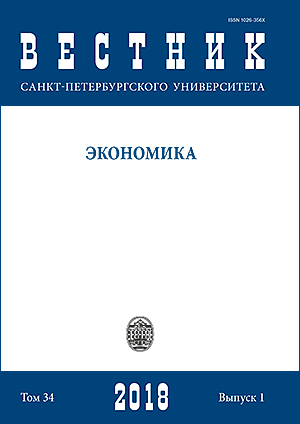Current trends in labor taxation in an open economy
DOI:
https://doi.org/10.21638/11701/spbu05.2018.104Abstract
We analyze both the theoretical framework of labor taxation in the open economy and important current reforms of labor taxation in countries worldwide, including the introduction of a “social VAT” intended to replace labor income taxes due to wider tax base. In general, the theory of labor income taxation suggests that in a small open economy, the introduction of origin-based capital income tax is constrained significantly. Current tax theory considers reforms of labor income taxation related to the shifting of taxation from more mobile factors of production to the less mobile ones, taking into consideration the reduction of tax rates with simultaneous widening of the tax base. Such reform is intended to reduce the distortion effects of taxation and, as a consequence, to reduce the tax burden on labor in order to increase employment and economic growth. The empirical analysis is related to taxation of labor income in OECD countries. Using economic and mathematical modeling, we estimate the progressivity of the labor taxation and find that in a most OECD countries, both employees’ and employers’ social security contributions systems are regressive or flat, while personal income tax systems are progressive in all countries except Hungary. Moreover, in OECD countries with the highest GDP per capita, employees bear moderate labor tax burdens with simultaneously low employers’ social security contribution rates.
Keywords:
personal earned income, labor taxation, open economy, consumption tax, social VAT, progressivity
Downloads
References
References in Latin Alphabet
Translation of references in Russian into English
Downloads
Published
How to Cite
Issue
Section
License
Articles of the St Petersburg University Journal of Economic Studies are open access distributed under the terms of the License Agreement with Saint Petersburg State University, which permits to the authors unrestricted distribution and self-archiving free of charge.







